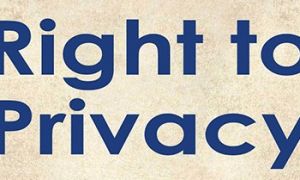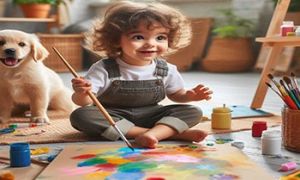The following lists the sub-outcomes, examples of evidence when children can achieve each sub-outcome and how educators can promote and help children to achieve MTOP Learning Outcome 1: Children And Young People Have A Strong Sense Of Identity.
In school-age care settings, children develop a sense of belonging when they feel accepted and are able to establish and maintain relationships with their peers and educators. Children’s sense of competence, confidence and motivation to achieve to the best of one’s ability is heavily influenced by the opinions of others. Children actively engage in the task of developing their self-identity while they are interacting with others. When children feel safe, secure and supported they grow in confidence to explore and learn.
Learning Outcome 1 - Children And Young People Have A Strong Sense Of Identity
Children and young people feel safe, secure and supported
This is evident when children and young people, for example:
- establish and maintain respectful, trusting relationships with other children and young people and educators
- use effective routines to make predicted transitions
- sense and respond to a feeling of belonging
- openly express their feelings and ideas in their interactions with others
- respond to ideas and suggestions from others
- initiate interactions and conversations with trusted educators
- confidently explore and engage with social and physical environments through relationships and play
- initiate and join in play and leisure activities
- feel safe to participate in all activities regardless of gender
- share spaces and resources safely and equitably with other genders/groups
- have access to resources that support cultural diversity and family structures
- can share their stories about Aboriginal and Torres Strait Islander history and culture
- can use home languages
- can identify a number of trusted people they can talk to about what upsets them, makes them uncomfortable or sad.
Educators promote this learning for all children and young people when they, for example:
- spend time interacting and conversing with children and young people, listening and responding sensitively as they express their ideas and needs
- support children and young people’s attachment through consistent and warm nurturing relationships
- familiarise and involve themselves with the setting’s Reconciliation Action Plan
- support children and young people in times of change and bridge the gap between the familiar and the unfamiliar
- recognise that feelings of distress, fear or discomfort may take some time to resolve
- acknowledge each child’s uniqueness in positive ways
- refer to children and young people with the pronouns they would like to be identified by
- provide books and other resources that depict diverse gender roles and identities respectfully
- support diverse genders and cultures to share spaces and resources safely and equitably
- support the development of children and young people’s friendships
- acknowledge the importance of opportunities for children and young people to relax through play and leisure
- trust and support children and young people to be successful and capable
- establish mutual trust and respect between the families that attend the setting
- provide a culturally safe place where Aboriginal and Torres Strait Islander children and young people and children and young people from culturally diverse backgrounds can share their
- stories about history and culture
- provide opportunities for Aboriginal and Torres Strait Islander educators to provide feedback and reflections on best practice
- ensure the Aboriginal and Torres Strait Islander flags are displayed at the setting
- acknowledge each child or young person’s uniqueness in positive ways
- provide a culturally safe environment.
Children and young people develop their autonomy, interdependence, resilience and sense of agency
This is evident when children and young people, for example:
- participate in a range of freely chosen play and leisure opportunities
- demonstrate awareness of the needs and rights of others
- are open to new challenges and discoveries
- demonstrate understanding of the opinions of others about their efforts
- increasingly cooperate and work collaboratively with others
- take considered risk in their decision-making and cope with the unexpected
- recognise their individual achievements and the achievements of others
- demonstrate a capacity for self-regulation, negotiating and sharing behaviours
- persist when faced with challenges and when first attempts are not successful
- display a willingness to achieve to the best of one’s ability
- show initiative by seeking information and asking questions
- learn how to stand up for themselves in appropriate ways.
Educators promote this learning for all children and young people when they, for example:
- encourage children and young people to make choices and decisions
- encourage children and young people to collaborate with peers and educators to plan programs
- provide children and young people with strategies to make informed choices about their behaviours
- promote children and young people’s sense of belonging, connectedness and wellbeing
- maintain high expectations of each child’s capabilities
- mediate and assist children and young people to negotiate their rights in relation to the rights of others
- display encouragement and enthusiasm for children and young people’s attempts
- motivate and encourage children and young people to succeed when they are faced with challenges
- provide time and environment for children and young people to engage in both individual and collaborative pursuits
- trust and support older children and young people to be autonomous and capable
- apply a strength-based approach to practice to encourage confident learners
- share stories with families including Aboriginal and Torres Strait Islander families about their young person’s successes.
Children and young people develop knowledgeable, confident self-identities and a positive sense of self-worth
This is evident when children and young people, for example:
- feel recognised and respected for who they are
- explore different identities and points of view in play and discussions
- develop a wider sense of the diverse values and beliefs held by others
- develop strong foundations in both the culture and language/s of their family and of the broader community without compromising their cultural identities
- develop their social and cultural heritage through engagement with Elders and community members
- reach out and communicate for comfort, assistance and companionship
- celebrate and share their contributions and achievements with others
- acknowledge and celebrate Aboriginal and Torres Strait Islander traditions, customs and celebrations
- share their stories about their Country and community
- develop a positive sense of cultural identity amongst children and young people, including Aboriginal and Torres Strait Islander children and young people
- share information about their family, culture, home languages and aspects that make them unique
- celebrate their own efforts and share contributions with others
- display a positive learner identity
- feel accepted and affirm their group membership.
Educators promote this learning for all children and young people when they, for example:
- listen to and learn about children and young people’s understandings of themselves, who they are and their connectedness to others – a shared identity as Australians
- ensure all children and young people experience pride and confidence in their achievements
- share children and young people’s successes with families
- show respect for and a deep understanding of diversity, acknowledging and celebrating the varying approaches of children and young people, families, communities and cultures
- acknowledge and understand that children and young people construct meaning in many ways
- maintain and build on the knowledge, languages and understandings that children and young people bring
- acknowledge each child and young person’s family, culture, language and uniqueness in positive ways
- talk with children and young people in respectful ways about similarities and differences in people, identities and culture
- provide rich and diverse resources that reflect children's and young people’s social worlds
- actively support access to science and technology experiences
- demonstrate inclusive communication practices, such as pronouncing each person’s name correctly and using preferred names, e.g. nicknames including gender pronouns
- provide older children and young people with experiences that are challenging, engaging and reflect their diverse interests
- provide opportunities for educators to develop knowledge and understanding of Aboriginal and Torres Strait Islander relationships and connections to Country and family including kinships systems
- recognise disability as a form of diversity and demonstrate inclusive approaches in their interactions with children and young people
- develop understanding and knowledge of approaches to support gifted and talented children and young people
- create inclusive indoor and outdoor environments with awareness of barriers to participation.
Children and young people learn to interact in relation to others with care, empathy and respect
This is evident when children and young people, for example:
- show interest in other children and young people and being part of a group
- spend a large proportion of their time with peers
- establish and maintain relationships with peers
- engage in and contribute to play and leisure experiences
- express a wide range of emotions, thoughts and views constructively
- empathise with and express concern for others
- display awareness of and respect for others’ perspectives
- display awareness of and respect for children and young people’s diverse worlds, e.g. culture, family structure, capabilities and strengths
- reflect on their actions and consider the consequences for others
- learn to control strong emotions and impulses
- demonstrate respectful relationships with all peers and adults
- learn about Aboriginal and Torres Strait Islander history and culture in the context of their community
- build a sense of responsibility and respect for the needs and well-being of the group
- challenge unfair acts and discrimination
- listen to others’ opinions or points of view
- learn about safe and unsafe situations
- identify trusted adults and friends
- seek help from trusted adults when required.
Reference:
My Time Our Place Framework For Australia, ACECQA


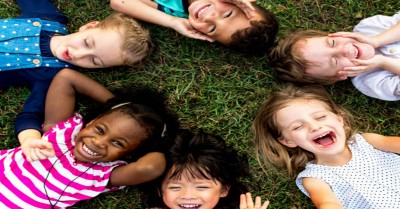


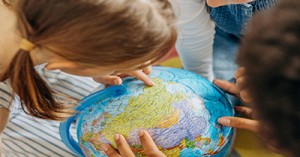
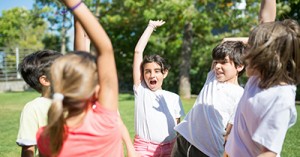
 Here is the list of the EYLF Learning Outcomes that you can use as a guide or reference for your documentation and planning. The EYLF
Here is the list of the EYLF Learning Outcomes that you can use as a guide or reference for your documentation and planning. The EYLF The EYLF is a guide which consists of Principles, Practices and 5 main Learning Outcomes along with each of their sub outcomes, based on identity,
The EYLF is a guide which consists of Principles, Practices and 5 main Learning Outcomes along with each of their sub outcomes, based on identity, This is a guide on How to Write a Learning Story. It provides information on What Is A Learning Story, Writing A Learning Story, Sample
This is a guide on How to Write a Learning Story. It provides information on What Is A Learning Story, Writing A Learning Story, Sample One of the most important types of documentation methods that educators needs to be familiar with are “observations”. Observations are crucial for all early childhood
One of the most important types of documentation methods that educators needs to be familiar with are “observations”. Observations are crucial for all early childhood To support children achieve learning outcomes from the EYLF Framework, the following list gives educators examples of how to promote children's learning in each individual
To support children achieve learning outcomes from the EYLF Framework, the following list gives educators examples of how to promote children's learning in each individual Reflective practice is learning from everyday situations and issues and concerns that arise which form part of our daily routine while working in an early
Reflective practice is learning from everyday situations and issues and concerns that arise which form part of our daily routine while working in an early Within Australia, Programming and Planning is reflected and supported by the Early Years Learning Framework. Educators within early childhood settings, use the EYLF to guide
Within Australia, Programming and Planning is reflected and supported by the Early Years Learning Framework. Educators within early childhood settings, use the EYLF to guide When observing children, it's important that we use a range of different observation methods from running records, learning stories to photographs and work samples. Using
When observing children, it's important that we use a range of different observation methods from running records, learning stories to photographs and work samples. Using This is a guide for educators on what to observe under each sub learning outcome from the EYLF Framework, when a child is engaged in
This is a guide for educators on what to observe under each sub learning outcome from the EYLF Framework, when a child is engaged in The Early Years Learning Framework describes the curriculum as “all the interactions, experiences, activities, routines and events, planned and unplanned, that occur in an environment
The Early Years Learning Framework describes the curriculum as “all the interactions, experiences, activities, routines and events, planned and unplanned, that occur in an environment